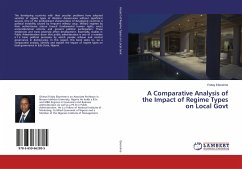Bendersky provides the only English-language translation of one of Carl Schmitt's most controversial works. At the time of its publication in 1934 and during the war and the post-war years, the treatise was seen as a rationalization of the Nazi legal order. With the renaissance of Schmitt studies beginning in the 1980s, the man and his work, and this volume in particular, was reinterpreted. While some maintained that it was a foundation of Nazi legal theory and practice, others see it as a failed attempt at a conservative counterweight to the most extreme tendencies in National Socialism. Most see it in the context of Schmitt's intellectual growth and the challenges of the era. An extended introduction and notes trace out the development of Schmitt's ideas as well as the various interpretations ehat have emerged to explain his work. Given the importance of Schmitt's ideas in modern political and judicial thought as well as its impact on constitution making, this translation will make this significant volume accessible to a wider readership of students and scholars of twentieth century political and legal theory.
Hinweis: Dieser Artikel kann nur an eine deutsche Lieferadresse ausgeliefert werden.
Hinweis: Dieser Artikel kann nur an eine deutsche Lieferadresse ausgeliefert werden.








